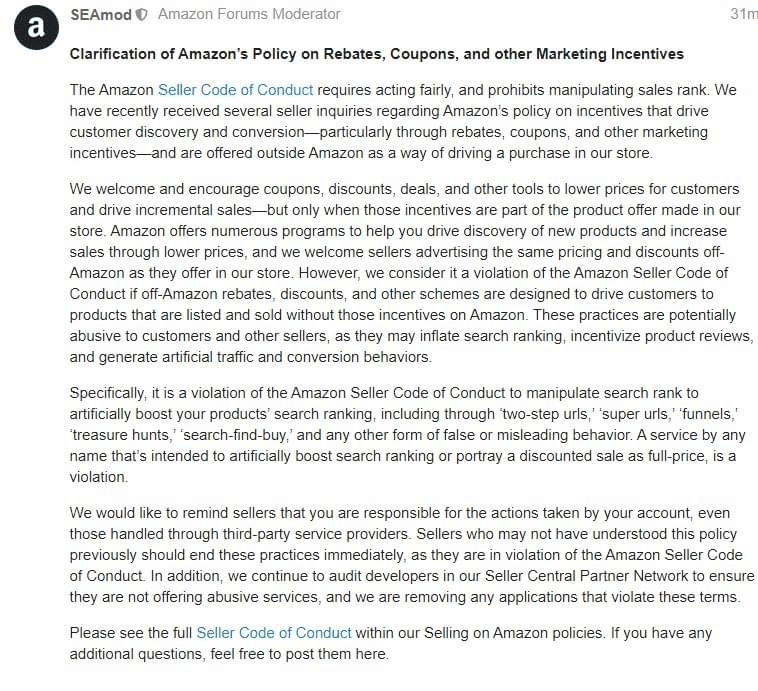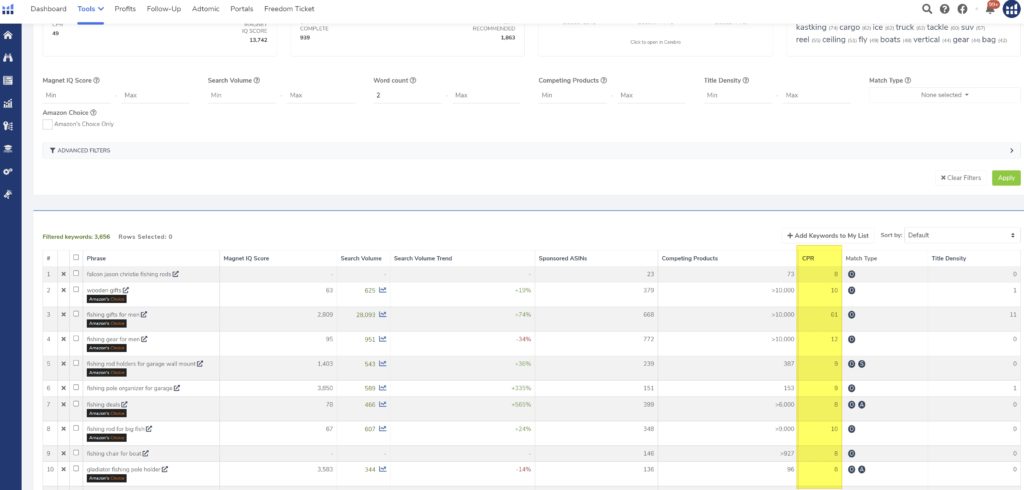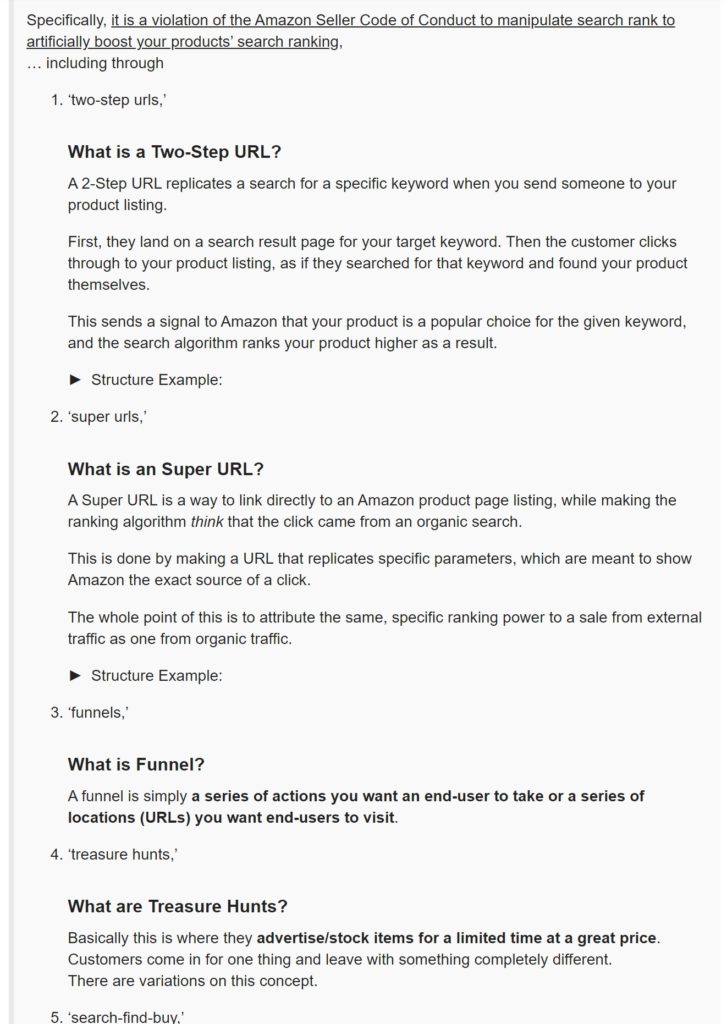
Amazon late Tuesday officially announced that off-Amazon discounts and rebates are officially against Amazon TOS. In other words, Amazon just killed rebate services, most popularly, RebateKey.
Amazon made an announcement on its Seller Forums and, rather refreshingly, spelled out its policy in some of the clearest and unambiguous language possible for a policy update of this nature.
As per Amazon, “We welcome and encourage coupons, discounts, deals, and other tools to lower prices for customers and drive incremental sales—but only when those incentives are part of the product offer made in our store. ” In other words, you can use discounts and deals, but only if they happen on Amazon.

Amazon also clarified its position on manipulative URLs and even addressed certain URLs by name, specifically “treasure hunts” and “search-find-buy.” The use of these URLs has been less of a grey area though, and most sellers were aware these would be viewed as a violation of Amazon's existing policy of manipulating search results.
What Does This Mean for RebateKey and Other Services?
Amazon effectively killed RebateKey and other similar services. Offering a rebate for a product purchase on Amazon is not a violation of any law (at least as far as I know!). Meaning there's nothing Amazon could do to shut RebateKey down aside from revoking their API access, and API access isn't necessary for using RebateKey anyways. However, it is now a very clear violation of Amazon's TOS. Being a violation of TOS means only the most risk-tolerant sellers would use a rebate service like RebateKey.
Conceivably, RebateKey could relaunch as a service giving discounts on Amazon instead of off of Amazon. However, most people believe discounted items have far less weight than full-price purchases, so the number of sellers willing to do this would be likely fairly small.
If You Used Rebates in the Past, Is Your Amazon Account in Danger?
For sellers who used rebates in the past, the natural question is to ask whether their Seller Central account is now in danger.
Whether Amazon can act (we'll get to whether they will act shortly) comes down to whether Amazon could reliably determine which sellers have used rebates in the past. Amazon sent policy clarification emails to sellers who had given RebateKey API access, so they clearly have a record of sellers who enabled API access in their accounts.
However, this doesn't mean every seller who gave API access also did rebates. It also doesn't mean every seller who did rebates gave API access. So whether Amazon could conclusively prove sellers used rebates is debatable.
Even if we imagine that Amazon can determine which sellers have used rebates in the past, it doesn't mean they will act on these sellers. Amazon could foreseeably do one of a few things if it desired to act on past rebate users.
- Send a policy clarification email (as they have) and nothing more
- Issue a Policy warning to sellers, which is a strong warning but falls short of an account suspension
- Suspend sellers temporarily until they offer a clear Plan of Action addressing the issue
- Suspend sellers permanently, as they did with many Chinese sellers earlier in the year due to review manipulation
Your guess is as good as mine, but the fourth nuclear option of permanently suspending sellers could affect a large swath of sellers and have material ramifications for product availability on Amazon given the number of sellers who have presumably used rebates in the past.
What Does This Mean for Product Launches Going Forward?
There's one thing that will totally change going forward as a result of rebates being banned—product launches.
When launching a new product, doing a product giveaway has been a cornerstone of a seller's launch strategy for years now. Many product research tools like Helium 10 even gave estimates of the number of products that you'd need to give away to get a favorable search ranking for a particular keyword (Helium 10 has since removed that estimate, likely given the policy update). Some sellers give away those products with a discount code on Amazon which is still allowed. However, it has been well-known that a rebate that occurs off of Amazon is even more powerful.

Given that most sellers will now not be doing off-Amazon giveaways, the implications would seem to be that it will be harder to launch a new product into a competitive category, which also means that existing products will be better protected from future competition (at least until the next effective blackhat strategy comes along). It also means that using paid ads will likely be even more important going forward for product launches.
What About Search-Find-Buy and Other URLs?
Amazon also reiterated its position on manipulative URLs such as two-step URLs (which have mostly been ineffective anyway) and search-find-buy campaigns (also called Treasure Hunts).

This policy has always been pretty clear, so Amazon clarifying its position here wasn't necessary. However, more surprising was that Amazon called out certain URLs by name and used fancy seller jargon such as two-step URLs and Treasure Hunts. Interestingly, Amazon did not name Google Links/Magic Links, the popular new manipulative URL on the block.
Use of these URLs often leaves a pretty big footprint, so it would seem to be a bad idea for sellers to continue using them—although that probably won't stop many.
Final Thoughts
Amazon's action on off-Amazon giveaways was one of the more surprising policy updates in recent memory. It's one of the most significant policy updates since it banned incentivized reviews in 2016.
We can debate why Amazon finally decided to act, for instance, whether Amazon had its own self-interests in mind and trying to force more seller dollars into ads or due to FTC pressure. Regardless of the reason for its action, the conclusion is clear—off Amazon discounts are banned.




Hi Dave. Great post – thanks. You focus on 3P rebate/discount sites and SEO manipulation with URLs. But how does it affect how brands “interact” or promote their products to their own customers (D2C) off of Amazon – but with the goal of achieving an Amazon outcome (for example, creating an Amazon specific promotion for your own customers to gather reviews)? Thanks.
IMO, they’re just concerned about the rebate sites at the moment specifically as the VAST majority of people don’t have an audience that they can utilize. Even if they cared, as long as you’re promoting an Amazon discount code to your audience (or a social media promo page via amazon) it’s all kosher.
Thanks Dave – makes sense.
Thank you Dave for this insightful piece!
What do you think about the “funnels”. It’s pretty vague notion. Do you think it also includes campaign pages with the aim to rank on Google and then directing to Amazon?
My guess is they’re not going to pay a lot of attention to that sort of thing.